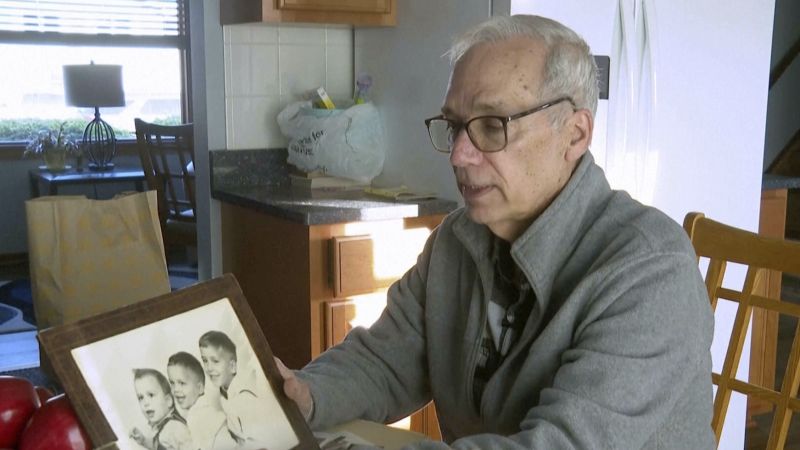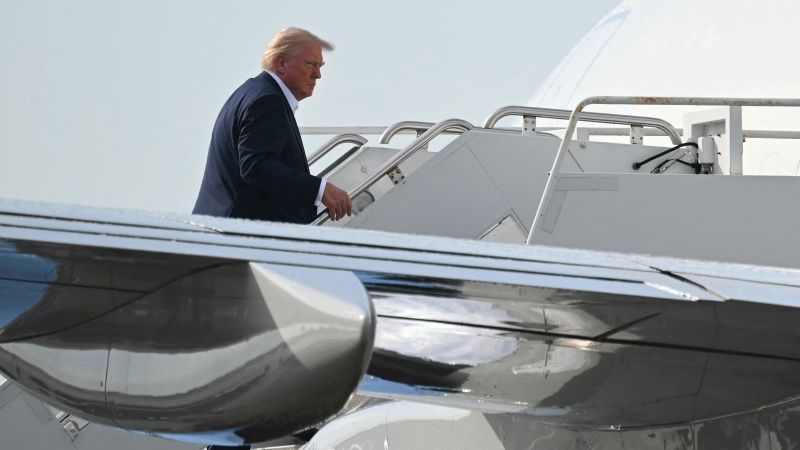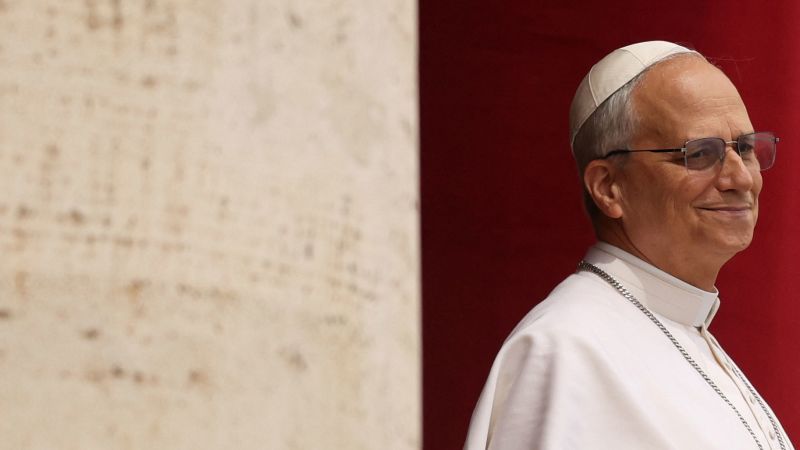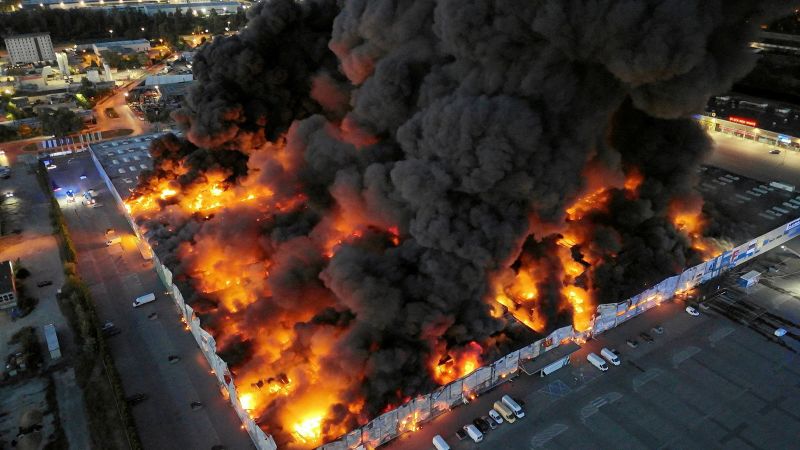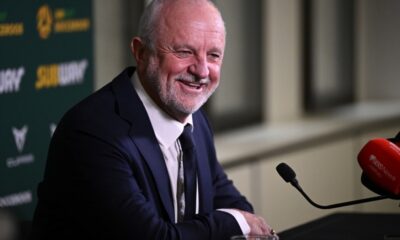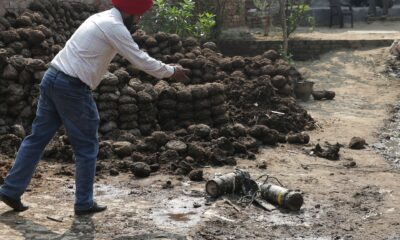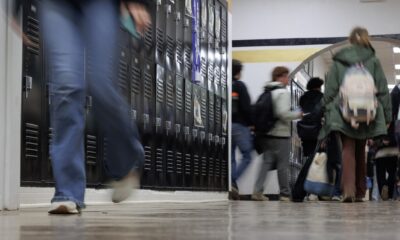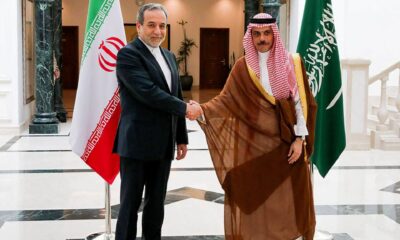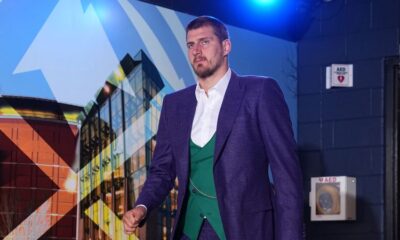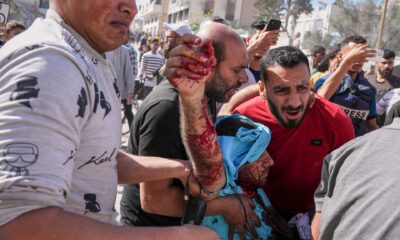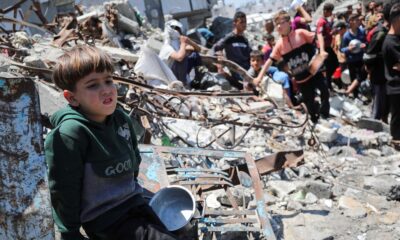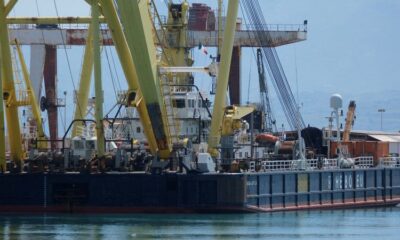The morning after John Prevost watched his younger brother Robert become Pope Leo XIV, he received a familiar phone call.
The new pope — who calls John every day — was well aware of the global interest in his selection as the first pontiff born in the United States. Journalists had descended on his family and friends, as well as many of the stops he’d made on his journey from a youth on the south side of Chicago to Peru and, eventually, the Vatican.
“Are the reporters gone?” a laughing John Prevost recalled the pope – “Rob” to him – ask. “I said no. ‘OK, goodbye.’”
The brother did clear up one question lingering in the minds of those in the pope’s hometown: Pope Leo roots for the White Sox, not the Cubs.
It’s a small window into an emerging portrait of the man who is the new leader of the world’s 1.4 billion Catholics. Friends and family members described him as a man who had chosen his path at a young age, and sacrificed to pursue it, but said he has also sought to stay in contact and follow through on commitments to those in Chicago, at his alma mater of Villanova University in Pennsylvania, where he started as a missionary in Peru, and more along the way.
They say they expect him to mirror the philosophy of his predecessor, Pope Francis — but to do so in his own image.
“He knew at such a young age that this is what he wanted. No one was going to talk him out of it,” John Prevost said.
John was reading a book in his living room Thursday when he got word there was white smoke coming out of the Sistine Chapel chimney — the traditional signal a new pontiff has been chosen. He turned the TV on and called his niece. Then, his brother stepped onto the balcony overlooking St. Peter’s Square in Vatican City.
“When I heard his name, she started screaming,” John said. “History was made.”
Still, he called his brother’s selection “bittersweet” because it means a family member who has spent most of his life far from home will be even harder to see.
Robert Prevost’s path toward priesthood began at an early age. He left home to attend a Catholic seminary high school in Michigan and only returned for summers and holidays.
Their eldest brother, Louis, told CNN’s Kaitlan Collins that as a child, Robert also insisted on playing priest. While his brothers groaned, the future pope would say Mass and then give communion by passing out Necco Wafers, he said.
“We kind of knew from the start, he’s going to go into the priesthood,” Louis said.
The whole neighborhood knew the altar boy would grow up to have a leading role in the Catholic church, said John, who also recalled his brother as a typical child, playing football and baseball with other children on their block and going to piano lessons.
“When we dropped him off for freshman year of high school, the drive home was very sad,” he said. “Now it’s even worse in the sense that — will we ever get to see him, unless we go over.”
Louis said he talks to Robert Prevost weekly — often catching him in the middle of watching soccer games. But he hadn’t yet connected with him since Thursday, when “Rob” became Pope Leo XIV. He said it brought tears of joy to his eyes to see his little brother become pope.

An American and a cardinal, but not an American cardinal
Before the cardinals gathered in Rome to choose the successor to Pope Francis, Cardinal Timothy Dolan, the Archbishop of New York, hadn’t thought much about Robert Prevost’s chances.
“I knew of him, but I thought – eh, one of the peripheral guys,” he told CNN’s Erin Burnett on Friday.
But those who know him say that while Pope Leo might not have planned on becoming pope, his life’s work has set him up to lead. At the Vatican, he earned a reputation as a capable administrator — quiet, low-key and a good listener.
Robert Prevost was raised on the far south side of Chicago in the parish of St. Mary of the Assumption, educated at St. Augustine Seminary High School in Michigan, at Villanova University, an Augustinian college, and at the Catholic Theological Union in Chicago, where he received a master of divinity in 1982 before later earning a doctor of canon law degree at the Pontifical University of Saint Thomas Aquinas in Rome.
But he spent much of his working life in Peru, where he was a missionary, leading the Augustinian seminary in Trujillo. He returned to Illinois in 1999 to lead the Order of Saint Augustine’s Midwestern province, and, starting in 2001, led the Augustinians globally — based in Rome, but traveling widely.
In 2014 he returned to Peru — where he became a naturalized citizen, receiving a Peruvian passport — and in 2015 was named bishop of Chiclayo.
The Diocese of Chiclayo celebrated his election and highlighted his dedication to social causes at a news conference Friday.
The diocese’s current bishop, Edinson Farfán, told journalists that Leo came to Peru “very young” and always had “a sensibility for the poor and the peripheries, and those who were not at the center of the church.”
Farfán also sought to draw a link between Leo’s time there and the name he chose, following the 13th pope who chose the name Leo and is widely regarded as the originator of modern Catholic social thought around issues like workers’ rights.
“Why did he choose Leo XIV as his name? Because you can say that Leo XIII was very sensitive of the social needs of society and how the church can help with that,” Farfán said in Spanish.
Fidel Purisaca, a priest who is friends with the pope and was a colleague in Chiclayo, said Leo visited all 50 parishes in the Diocese multiple times.
He was “very close to everyone” and that the priests’ house “had that spirit of family,” Purisaca said, calling Robert Prevost “an extraordinary bishop who lived an ordinary life and who was a great father, shepherd and friend, close to the heart of Christ and to others.”
In 2023, Prevost returned to the Vatican, where Francis had tapped him to lead the department that oversees the selection of new bishops. He was made a cardinal later that year.
Cardinal Joseph Tobin, the Archbishop of Newark in New Jersey, said that when Pope Leo was the leader of the Augustinian order, he would have spent half his time in Rome and “half of the year in other places.”
“If you’re privileged to work in another culture, other than the one you were raised in, you have to change,” Tobin said. “It’s … like a broadening experience.”
“And I think Bob has had – or Pope Leo – has had that,” Tobin said, inadvertently referring to the new pope by his former name. “He’s learned to think different ways.”
The pope, though, hasn’t exactly adapted to every local custom.
Mark O’Connor, a friar from Australia — where Prevost has traveled — told CNN he saw Leo recently and told him he’d brought a gift. Then-Cardinal Prevost responded that he hoped it wasn’t Vegemite. He was happy when the gift turned out to be a packet of TimTam chocolate biscuits.

The pontiff and the presidents
Prevost’s early days were spent in the same parts of Chicago that former President Barack Obama famously began his time as a community organizer. The pope’s childhood home and Obama’s first office were just miles away. The Catholic Theological Union, where Prevost completed his graduate studies, is close to the house the Obamas bought in 2005.
The two also could have crossed paths at Comiskey Park, home of the White Sox.
An Obama spokesman said they weren’t aware of a time the former president, also a White Sox fan, and the pope had met.
However, the pope does share a connection with former first lady Jill Biden: the two are Villanova University alumni. Their paths crossed there in 2014, where Biden, then the second lady, and Prevost each received honorary doctorates of humanities degrees.
Biden, who earned a master’s degree from Villanova in 1987, delivered the commencement address. The future pope sat behind Biden throughout her speech, laughing when she described herself as a “Philly girl.”
The two shook hands after her address and spent the ceremony seated near each other in the front row, with only the university’s president sitting between them.
As the first American pope, Leo is also the first with a voting record relevant to American elections. He has regularly voted in Illinois — participating in Republican primaries over the last 12 years and, before that, Democratic primaries.
And now, it’s the other American wielding massive global influence — President Donald Trump — whose comparisons to Pope Leo XIV might be most significant.
An X account in Robert Prevost’s name has, for the full decade since Trump launched his first presidential run in 2015, reposted multiple stories and posts critical of the president’s rhetoric and tactics on immigration. CNN has not been able to independently confirm the X account is connected to the newly elected pope.
Dolan said Prevost acting as a counter to Trump was not a significant factor in the conclave’s decision.
“I don’t think the fact that Cardinal Prevost was from the United States had much weight. It should not startle us that we would look to Pope Leo as a bridge builder. That’s what the Latin word ‘pontiff’ means,” Dolan said.
“Will he want to build bridges to Donald Trump? I suppose, but he would want to build bridges with the leader of every nation. So, I don’t think at all my brother cardinals would have thought of him as a counterweight to any one person,” he said.
White House press secretary Karoline Leavitt indicated there’s no bad blood between President Trump and Pope Leo, despite his potential connection to the critical social media posts.
“He is very proud to have an American pope,” Leavitt said at a news briefing Friday, responding to a question about the posts. “It’s a great thing for the United States of America and for the world, and we are praying for him.”

